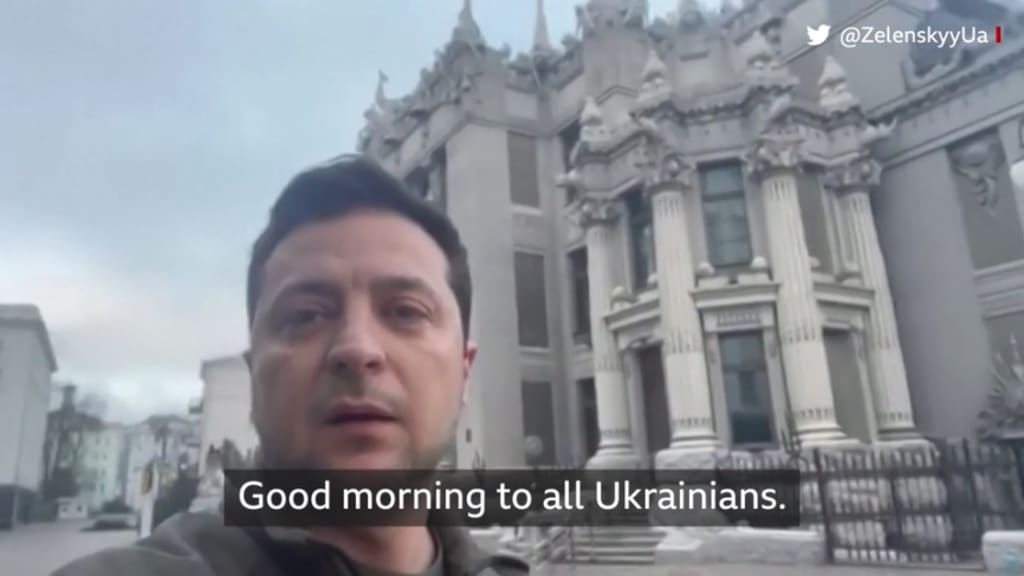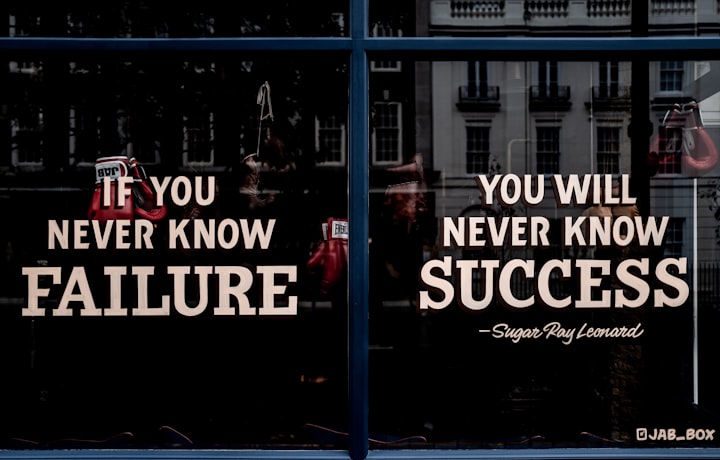If Kyiv Falls
Thoughts on a long occupation

IF KYIV FALLS
Derek B. Miller
26 February, 2022
It's nine o'clock in the morning in Barelona, where I live, and ten o'clock in Kyiv, Ukraine where the lawful government of a peaceful country is under assault from the Russians who — we're told by Western intelligence agencies — want to kill the elected leader, kill his family, and install a new government; a Russian government that thinks that will be the end of the story.
Will it be?
We don't know. But I don't think so, and there three reasons that I want to explain: hatred of Russian interference, the long memory of people's war, and love of freedom.
Russian Interference
Putin thinks that killing President Zelensky, murdering his family, and installing a puppet regime will work. It is too soon to know whether Zelensky's and the people's gallant stand in Kyiv will help turn back the Russian forces or whether the country will fall. They are profoundly outnumbered and surrounded. But what I am certain about is that even if it does fall — and it may — Ukraine will not become the puppet state that Putin thinks it will.
Through language, religion, history, and affinity, there are some parts of Ukraine that feel a deep connection to Russia. On a social level, there are friends and families across the border. The languages mutually comprehensible. Arts, business, literature … life … are all connected. On a personal level — especially among the young — these countries are not enemies. But at a historical level, at a macro level, there is a profound difference and animosity.
Among the reasons (and there are many) is that millions of Ukrainians were starved to death in the Great Famine of the 1930s when Stalin's collectivization and "revolution from above" (read: tyranny with an ideological justification) ended peasant farming and imposed his own from of Communism. From our distance in 2022 this may seem like a mere geopolitical fact or a sad piece of very old history. But as some eighty-percent of the Ukrainian population was living in rural areas, this meant people died from starvation and the horror, the terror, the grief lived on and was deeply remembered. The blame was clear.
Since then, Russia has been trying to destabilize Ukrainian democracy as it is a threat to both Russia's so-called sphere of influence and Putin's own authoritarian aspirations.
The thing is: Ukrainians like their freedom. The young people born in the mid-80s and afterwards have no experience without it. They can be occupied, and they might be, but only so long as the occupying force continues to act like one: with a police state, targeted killings, suppression of freedom of speech and political thought and action, periodic displays of brutality and torture and killings to keep the population subdued and other related tactics from the totalitarian occupier's handbook. We might recall here Russia's brutal support of Assad during Syria's war, and also its own war in Chechnya, to gain a sense of the kind of war Russia is regularly prepared to wage.
All of this takes time, money, people willing to do it, casualties they will inevitably suffer and growing discontent in Russia itself (especially among its own younger people). It's not easy occupying a nation-state the size of Texas. People don't like being occupied. It creates hatred and anger and aggression and all of that has to go somewhere.
People's War
European history — at the risk of sounding glib — has been a long game of capture the flag. Capture the other country's capital and you've won (at least for a while). Capture Berlin, Berlin falls, documents are signed, and a kind of peace arrives with paperwork. This is the game of princes that Machiavelli discussed, this is the system of statecraft that Hans Morganthau explained in his 1948 classic Politics among Nations: The Struggle for Power and Peace when he introduced theories of political realism “to bring order and meaning to a mass of phenomena which without it would remain disconnected and unintelligible.”
[A brief aside: Political scientists have continued to quote Morganthau far more often than they read him. They often and mistakenly think that he was proposing a universal explanation for how nations act. But he wasn't. As he explained in that same book, “The great political writers [Fénelon, Rousseau, and Vattel] of that age were aware of this intellectual and moral unity [of Europe], upon whose foundations the balance of power reposes and which makes its beneficial operations possible." In other words, the understood system of politics and war that made it intelligible and practicable was reposed upon a culturally shared understanding of how it all works, developed over time, and limited to that civilization.]
Putin, despite his Communist roots and KBG mentality, is treating the invasion of Ukraine in exactly this way: trying to kill the head of state and capture its flag. If that continues to be the case, Russia will assume that the occupied will lose heart, lose faith, forget their earlier aspirations, and can be subdued or distracted into accepting the new status quo. Here we face either the "enlightened tyrant" model or the unenlightened one. The first type will give people their material distractions and allow them to accumulate some wealth and comfort in return for their lack of freedom and love of their nation and hope that the tactic turns the tide so eventually there is a tipping point where people would rather have their iPhones and Twitter and fresh eggs rather than their own country. It can work.
Putin, however, doesn't seem very enlightened to me, however, and I strongly suspect he'll adopt the hard tactics of the police state like those mentioned. Western intelligence already suggests this is the case, and his mentality and character and training all suggest it.
So Putin's strategy if for the Ukrainians to give up — not just materially but spiritually, as it were — will it work?
I don't think so, even if Kyiv falls.
What Morganthau described as the Western way of war has almost never been the case in non-Western countries and, interestingly, it has not been the case in Communist countries where the ideas of Lenin, Mao, Giap and others have all prescribed a "people's war," and on-going, relentless, partisan resistance. Lenin once quipped that "politics is a continuation of war by other means," (inverting Carl von Clausewitz's famous dictum), meaning that war against the west is a permanent state, and one only negotiates to gain an advantage in that war — a lesson I believe Putin has taken to heart, and will never negotiate "in good faith" whether or not he's a Communist per se.
Ukraine is not a Communist country. But, like Putin himself, it is a country with a memory and culture of people's war persists. In my judgement — and it is only a judgement — it is going to mobilize the people to resist. The invasion of their country is going to remind them of Stalingrad, it is going to remind them of Partisan and Communist tactics. I would also mention: those tactics work. The West has not won a war against a communist or non-Western adversary despite having a closet-full of flags.
Love of Freedom
The late scholar Adda B. Bozeman once wrote that political systems are transient expedients on the surface of civilization. Governments, and forms of government, come and go, but the primary structuring ideas that sustain a society through time cannot be wished away, occupied, or destroyed. They persist. The reason is not magical or mystical but rather simple. Those ideas cohere into ways of life (a phrase borrowed from Jerome Bruner), and they are committed to them, and that commitment is a living thing.
It is what sustained Spain through eight hundred years of Moorish occupation.
Ukraine loves freedom. The young people only know freedom (despite a very rocky period of freedom since statehood); older people remember what it was like not to have it. Combined with hatred of Russian interference and a mindset of people's war, see Ukrainian resistance persisting and my mind is casts back to John Steinbeck for the answer as to why Ukrainians will never give up.
A short story you may not have heard: Shortly after he published The Grapes of Wrath in 1939, the American novelist John Steinbeck took a trip to Latin America to work on a movie. America was still not in the war and his experience proved to him that Nazi propaganda was widespread, increasingly effective and needed to be countered. Dr Donald V. Coers explained in his 1991 study John Steinbeck Goes to War, that the novelist wrote to President Roosevelt arguing that, ‘a crisis in the Western Hemisphere is imminent, and is to be met only by an immediate, controlled, considered, and directed method and policy.’
Steinbeck wanted to do something about it personally. He found an audience and supporter in the Office of Coordinator of Information at the Office of Strategic Services, then under Colonel William J. ‘Wild Bill’ Donovan. The OSS was the forerunner to the modern CIA and Wild Bill had a reputation for out-of-the-box thinking (insofar as he cared about the box at all). With his support, Steinbeck published a book of propaganda to support the occupied peoples of Europe. It was called The Moon is Down. It’s one of my favorite books.
The story was set in an unnamed peaceful, defenseless country in the north of Europe that had been occupied by the Nazis, a country widely accepted to be Norway. In the story, the occupied people were not encouraged to be super-human resistance fighters. Instead, it was about the fundamental ideas that — as Bozeman might have phrased it — organized and sustained that community through time: ideas of liberty, and participatory government, and freedom of thought, and independence of action – and how they could not be simply ordered away by the occupiers. In the book, the Nazis came to the dawning realization that they were up against a force much more powerful than themselves. Killing the leaders and occupying the country did not change the hearts of the people.
As Coers tells us, Steinbeck wrote a fable that celebrated ‘the durability of democracy’, and argued through his story that ‘free people are inherently stronger than the “herd people” controlled by totalitarian leaders, and that, despite the initial advantage of the militarily mighty dictators, the democracies would eventually win the war’.
Dr Coers learned through his documentation of the impact of The Moon is Down that the occupied peoples of Europe – of Norway, Denmark, the Netherlands and elsewhere – had been deeply moved by the book; a book that, in my opinion, might give heart to the Ukrainians if the worst comes to pass.
As he writes, ‘Their explanations of its effectiveness are remarkably similar: somehow an author living thousands of miles away in a land of peace sensed precisely how they felt as victims of Nazi aggression.’
In Norway — where I lived for a decade — they were so moved that in 1946, King of Norway bestowed on Steinbeck the Haakon VII Cross, a medal given only to those who distinguished themselves by ‘outstanding service to Norway during the war’.
If Kyiv falls, I don't think the people of Ukraine will accept the occupation and I hope that the people of Europe will assist them materially, financially, spiritually.
They will persist, whether through continued armed resistance or by their continued faith and practice of the freedoms they will not relinquish simply because they are being ordered to. And the reason is because they can't. They are a democracy. They hate the Russians. They love their freedom. They have a mindset of resistance.
_______
Derek B. Miller, Ph.D., is an American novelist and international affairs professional. He is an Adjunct Senior Fellow at the Pell Center for International Relations and Public Policy at Salve Regina University, and Research Associate at the Centre for Conflict, Development and Peacebuilding, The Graduate Institute, Geneva, Switzerland. He is the author of Norwegian by Night and other novels.
About the Creator
Derek B. Miller
Dr. Derek B. Miller is an American novelist and political scientist. He is Adjunct Senior Fellow at the Pell Center for International Relations and Public Policy and is the author of six novels, including HOW TO FIND YOUR WAY IN THE DARK.







Comments
There are no comments for this story
Be the first to respond and start the conversation.